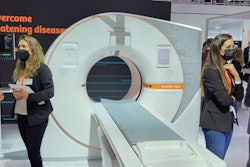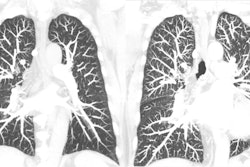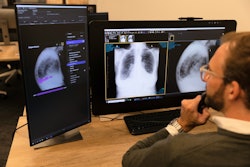Dear AuntMinnie Member,
It's been a long and frustrating struggle for CT colonography (CTC) to achieve acceptance as a mainstream technique for colorectal cancer screening. Uptake has been held back for a variety of reasons, including lack of Medicare reimbursement, and advocates received more frustrating news this week with the American College of Physicians (ACP) choosing not to recommend CTC as a screening test.
The decision, which is contrary to recommendations from the U.S. Preventive Services Task Force, the American College of Gastroenterology, and the American Cancer Society, could negate colorectal cancer screening gains and disproportionately affect racial minorities, according to the American College of Radiology.
Our coverage of the ACP announcement was our most highly viewed story of the week and you can read all about it here.
In other popular news in our Advanced Visualization Community, learn about how MRI radiomics features can predict breast cancer tumor expression.
Mammography AI news
Speaking of breast cancer, researchers from Sweden earlier this week shared interim results of a study that compares double reading of screening mammography exams with a protocol that utilizes AI software to triage low- and intermediate-risk cases for review by a single radiologist. Cases deemed to be high-risk still undergo double reading.
In 80,000 women in the ongoing Mammography Screening with Artificial Intelligence (MASAI) trial, the AI-assisted group has had 20% more cancers detected without an increase in false-positive cases.
Although the study is specifically comparing the AI software to the double-reading model used in Europe, the results are also likely relevant for single-reading screening programs, according to the researchers. Get all of the details here or by visiting our Women's Imaging Community.
AI for lung nodules
Research involving AI also generated significant page views in our CT Community. A deep-learning algorithm that incorporates information from prior low-dose CT exams is more effective for estimating three-year malignancy of pulmonary nodules than models that use just a single CT scan, according to researchers from the Netherlands.
Meanwhile, a new study has concluded that optimized single-use iodinated contrast media vials could reduce waste by almost 60%, according to the researchers. Find out more here.




















